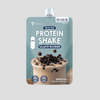Food Allergens and Chronic Inflammation

As a leading online platform for high-quality protein supplements in Canada and the US, Tryall Protein is committed to helping you optimize your nutrition for better health, performance, and recovery. Whether you're building muscle, managing weight, or simply aiming for overall wellness, understanding how food impacts your body is key. In this post, we'll dive into food allergens and their link to chronic inflammation—a silent driver of many long-term health problems. By identifying and avoiding problematic foods, you can reduce inflammation, improve energy levels, and even enhance your fitness results. Let's explore what food allergies are, their symptoms, and practical steps to take control.
What Is a Food Allergy?
Food allergies occur when your immune system mistakenly identifies certain proteins in food as harmful invaders, triggering a defensive response. This can range from mild discomfort to life-threatening reactions. It's important to distinguish between true allergies and other reactions like intolerances, as they affect the body differently.
Acute Food Allergies: The Immediate Threat
Acute food allergies are typically mediated by Immunoglobulin E (IgE) antibodies. When you consume an allergenic food, your body releases histamine and other chemicals, leading to rapid symptoms. These can appear within minutes to hours and include:
- Redness, swelling, or hives on the skin
- Abdominal pain or diarrhea
- Anaphylactic shock in severe cases
- Dizziness or lightheadedness
Common triggers for acute allergies include peanuts, tree nuts, shellfish, eggs, milk, wheat, soy, fish, and sesame. If you suspect an acute allergy, seek immediate medical attention, as it can be dangerous.
Chronic Food Allergies: The Slow-Burning Issue
Beyond acute reactions, there's growing discussion around "chronic food allergies" or sensitivities, often linked to Immunoglobulin G (IgG) antibodies. According to some clinics, like those in Taiwan specializing in allergy detection, chronic food allergies don't cause immediate drama but instead contribute to ongoing, low-level inflammation. This type of reaction is subtler and can manifest as persistent discomforts that you might dismiss as "normal" aging or stress.
Symptoms of chronic food sensitivities are incredibly diverse and can affect nearly every system in your body. Almost any long-term issue could potentially stem from unresolved inflammation caused by these sensitivities. While this concept is promoted by some alternative health practitioners, it's worth noting the controversy: mainstream medical organizations, such as the American Academy of Allergy, Asthma & Immunology (AAAAI), argue that IgG testing doesn't reliably diagnose allergies or intolerances. In fact, elevated IgG levels might indicate tolerance to a food rather than a problem. Critics, including the Canadian Society for Allergy and Clinical Immunology, view IgG tests as unproven and potentially misleading, leading to unnecessary dietary restrictions.
That said, proponents argue that IgG testing can highlight foods causing delayed reactions or intolerances, which differ from true allergies. Food intolerances involve digestive or metabolic issues (like lactose intolerance) rather than immune responses, but they can still promote inflammation. Regardless of the label—allergy, sensitivity, or intolerance—addressing chronic inflammation is widely recognized as a powerful way to manage related health issues. Eliminating inflammatory triggers can lead to real improvements, even if the science on IgG testing remains debated.
Common Symptoms of Chronic Inflammation from Food Sensitivities
If you're dealing with unexplained, ongoing health woes, chronic inflammation from food could be a factor. Here are some of the most reported symptoms associated with these sensitivities:
- Chronic headaches or migraines
- Skin issues like eczema, acne, or rashes
- Autoimmune conditions, such as rheumatoid arthritis or thyroid problems
- Gastrointestinal troubles, including bloating, IBS, or constipation
- Poor nutrient absorption, leading to deficiencies
- Mood disorders like depression or anxiety
- Metabolic syndrome, including insulin resistance
- Stubborn obesity or weight gain
- Reduced muscle-building effectiveness, despite consistent training
These symptoms arise because chronic inflammation keeps your body in a constant state of alert, taxing your energy, hormones, and recovery. For athletes and fitness enthusiasts, this can mean slower gains, persistent fatigue, and higher injury risk. The good news? Resolving inflammation through diet changes often yields quick wins in energy, mood, skin clarity, and body composition.
Foods to Avoid: Top Culprits for Inflammation and Sensitivities
Not all foods affect everyone the same way—genetics, gut health, and lifestyle play roles in your tolerance levels. However, certain foods are notorious for triggering allergies, intolerances, or inflammation. Based on common allergens and inflammatory foods, here are the top ones to watch:
- Milk and Dairy: Lactose and casein can cause digestive upset and inflammation, especially in those with intolerances.
- Peanuts: A major allergen that can spark both acute and chronic responses.
- Tree Nuts (e.g., almonds, walnuts): Similar to peanuts, they often cause sensitivities.
- Eggs: The proteins in eggs can lead to delayed reactions in some people.
- Seafood (Fish and Shellfish): High in potential allergens and sometimes contaminants that promote inflammation.
- Wheat and Gluten-Containing Grains: Refined wheat products like bread and pasta are linked to inflammation via refined carbs and gluten sensitivities.
Other inflammatory foods to limit include processed meats, fried items, sugary treats, and refined carbs, as they exacerbate overall inflammation. Everyone's body is unique, so what bothers one person might be fine for another.
How to Test or Experiment
If you're serious about pinpointing your triggers, consider an elimination diet: Cut out the above foods for 2-4 weeks and monitor changes. Many report better energy, clearer skin, improved mood, and easier fat loss. Then, reintroduce one food at a time—if symptoms return, that's your cue to avoid it.
For a more targeted approach, some opt for IgG testing through specialized clinics. While controversial and not endorsed by major allergy societies (as it may not distinguish true issues), it can provide a starting point for those exploring sensitivities. Always consult a healthcare professional before major diet changes, especially if you have existing conditions.
If you directly test for IgG allergens, use the results as a guide to customize your diet. At Tryall Protein, our plant-based and whey-alternative options are designed to be low in common allergens like dairy, gluten, and nuts—perfect for inflammation-free fueling. Check out our hypoallergenic protein powders to support your anti-inflammatory journey without sacrificing gains.
By addressing food allergens and chronic inflammation, you can unlock better health and performance. Stay tuned to our blog for more tips on nutrition, and shop our allergen-friendly proteins today for delivery across Canada and the US!
Disclaimer: This post is for informational purposes only and not medical advice. Consult a doctor for personalized guidance on allergies or testing.





